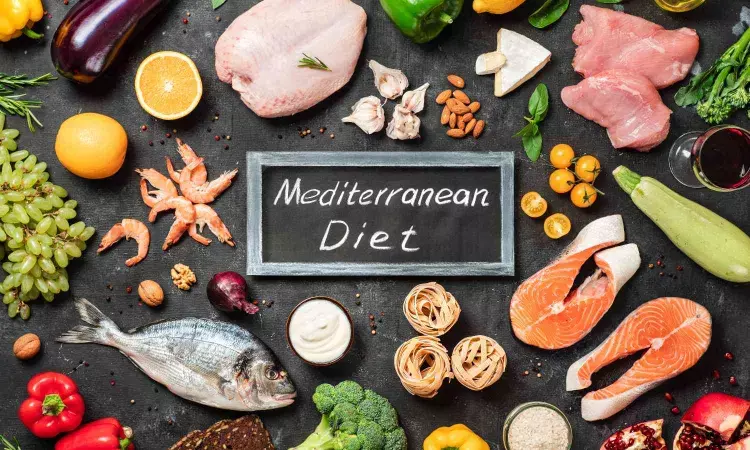- Home
- Medical news & Guidelines
- Anesthesiology
- Cardiology and CTVS
- Critical Care
- Dentistry
- Dermatology
- Diabetes and Endocrinology
- ENT
- Gastroenterology
- Medicine
- Nephrology
- Neurology
- Obstretics-Gynaecology
- Oncology
- Ophthalmology
- Orthopaedics
- Pediatrics-Neonatology
- Psychiatry
- Pulmonology
- Radiology
- Surgery
- Urology
- Laboratory Medicine
- Diet
- Nursing
- Paramedical
- Physiotherapy
- Health news
- Fact Check
- Bone Health Fact Check
- Brain Health Fact Check
- Cancer Related Fact Check
- Child Care Fact Check
- Dental and oral health fact check
- Diabetes and metabolic health fact check
- Diet and Nutrition Fact Check
- Eye and ENT Care Fact Check
- Fitness fact check
- Gut health fact check
- Heart health fact check
- Kidney health fact check
- Medical education fact check
- Men's health fact check
- Respiratory fact check
- Skin and hair care fact check
- Vaccine and Immunization fact check
- Women's health fact check
- AYUSH
- State News
- Andaman and Nicobar Islands
- Andhra Pradesh
- Arunachal Pradesh
- Assam
- Bihar
- Chandigarh
- Chattisgarh
- Dadra and Nagar Haveli
- Daman and Diu
- Delhi
- Goa
- Gujarat
- Haryana
- Himachal Pradesh
- Jammu & Kashmir
- Jharkhand
- Karnataka
- Kerala
- Ladakh
- Lakshadweep
- Madhya Pradesh
- Maharashtra
- Manipur
- Meghalaya
- Mizoram
- Nagaland
- Odisha
- Puducherry
- Punjab
- Rajasthan
- Sikkim
- Tamil Nadu
- Telangana
- Tripura
- Uttar Pradesh
- Uttrakhand
- West Bengal
- Medical Education
- Industry
Low-Fat Vegan Diet Reduces Advanced Glycation End-Products to Aid Weight Loss, reports study

A recent research highlighted the potential impact of dietary advanced glycation end-products (AGEs) on body weight, with new findings published in the Frontiers in Nutrition suggesting that a low-fat vegan diet may offer significant benefits in reducing these harmful compounds and promoting weight loss.
A recent randomized crossover trial explored the effects of two popular dietary patterns (Mediterranean and low-fat vegan diets) on dietary AGEs and their association with body weight. The study included a total of 62 overweight adults who alternated between a Mediterranean diet and a low-fat vegan diet, each for 16 weeks, with a 4-week washout period between the two phases.
The primary goal of this study was to determine how these diets influenced dietary AGEs and whether these changes correlated with body weight. This research utilized 3-day diet records analyzed through the Nutrition Data System for Research software, which provided a detailed estimate of dietary AGEs based on an established database. This study ensured that each participant served as their own control by enhancing the reliability of the results.
The findings revealed a marked contrast between the two diets in terms of their impact on dietary AGEs. The participants on the low-fat vegan diet experienced a substantial decrease in dietary AGEs, with levels dropping by 73%, equating to a reduction of approximately 9,413 kilounits AGE per day. This reduction was statistically significant (p < 0.001) and stood in sharp contrast to the Mediterranean diet, where no significant change in dietary AGEs was observed.
This reduction in AGEs on the low-fat vegan diet was accompanied by a notable average weight loss of 6.0 kg (about 13.2 pounds). Also, the participants on the Mediterranean diet did not experience significant weight loss. The difference in weight change between the two diets was statistically significant (p < 0.001) that further emphasizing the distinct effects of the low-fat vegan diet.
The study shed strong evidence that a low-fat vegan diet significantly reduces dietary AGEs, which in turn, is associated with weight loss. The Mediterranean diet did not produce similar effects on either AGEs or body weight. These findings illuminate the potential of dietary modifications in managing body weight and reducing the intake of harmful AGEs by offering a promising option for individuals seeking effective dietary strategies.
Source:
Kahleova, H., Znayenko-Miller, T., Motoa, G., Eng, E., Prevost, A., Uribarri, J., Holubkov, R., & Barnard, N. D. (2024). Dietary advanced glycation end-products and their associations with body weight on a Mediterranean diet and low-fat vegan diet: a randomized, cross-over trial. In Frontiers in Nutrition (Vol. 11). Frontiers Media SA. https://doi.org/10.3389/fnut.2024.1426642
Neuroscience Masters graduate
Jacinthlyn Sylvia, a Neuroscience Master's graduate from Chennai has worked extensively in deciphering the neurobiology of cognition and motor control in aging. She also has spread-out exposure to Neurosurgery from her Bachelor’s. She is currently involved in active Neuro-Oncology research. She is an upcoming neuroscientist with a fiery passion for writing. Her news cover at Medical Dialogues feature recent discoveries and updates from the healthcare and biomedical research fields. She can be reached at editorial@medicaldialogues.in
Dr Kamal Kant Kohli-MBBS, DTCD- a chest specialist with more than 30 years of practice and a flair for writing clinical articles, Dr Kamal Kant Kohli joined Medical Dialogues as a Chief Editor of Medical News. Besides writing articles, as an editor, he proofreads and verifies all the medical content published on Medical Dialogues including those coming from journals, studies,medical conferences,guidelines etc. Email: drkohli@medicaldialogues.in. Contact no. 011-43720751


